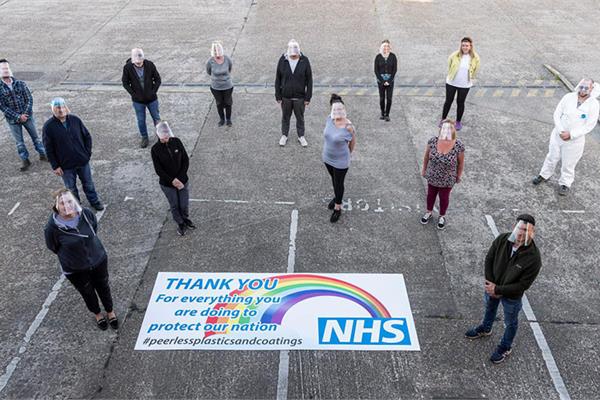
Peerless Plastics and Coatings, a manufacturer of hard coatings for plastics based in Thetford (UK), has tested its MicroGuard Anti-Fog coating range against NL63 Human Coronavirus, proving 99% effective.
Peerless provides a range of protective coatings for application on to different types of plastic.
Among the range of products manufactured by the company there is MicroGuardTM, an anti-bacterial coating for plastic launched in 2015, available also with an Anti-Fog option, which has already been used and tested within industries such as Healthcare, Veterinary, Dentistry, Food Processing and Aerospace.
Following the heightened demand for coatings with special antimicrobial and antiviral properties, Peerless MicroGuard Anti-Fog coating range - which can be used on a number of items including visors and screens - has now been tested against NL63 Human Coronavirus and proven 99% effective.
The testing process
After the coronavirus outbreak, Peerless immediately had MicroGuard tested against FCoV (Feline Coronavirus) as the nearest test available at that time.
After initial tests showed it reduced FCoV, the company carried out more work to improve its effectiveness, with the aim of offering anti-fog coatings for items such as visors and goggles.
The MicroGuard Anti-Fog and the MicroGuard Clear Hard coatings were submitted for testing against the NL63 (Human Coronavirus) using the ISO21702:2019 test method.
"Results on the MicroGuard Clear Hard Coating are still awaited but MicroGuard Anti-Fog results are in and the coating has proved to be 99% effective against NL63 (Human Coronavirus) meaning that it offers anti-viral performance", explains Peerless.
"We are very encouraged by these test results and will continue to develop new hard coating solutions to meet on-going demands," adds Peerless Managing Director, Peter Llewellyn Stamp.
The growing demand for improved performance
Interest in Anti-Fog coatings has risen as manufacturers of personal protective equipment (PPE) seek to improve the performance of their products and offer wearers of essential face coverings - such as NHS and other key workers - better gear.
"There was a growing interest in the products as people realised they needed to put in place longer-lasting solutions or products which met users' demands", explains Peter Llewellyn Stamp. "Two examples would be Anti-Fog on the inside of medical visors so that they don't mist up during the course of the day and sneeze screens which have been installed into retailers, supermarkets and restaurants, which would benefit greatly from scratch and chemical resistance to meet the day-to-day wear and tear".
"We have grown our team from 35 to over 40 people and will need to take on more people in the coming months as we expand operating hours to meet demand," adds Llewellyn Stamp. "The MicroGuard coating range can add value to many applications and will enable us to now offer coatings to companies across Europe and beyond, looking for long term anti-microbial or anti-viral protection on face coverings and surfaces such as desks, doors, screens, handles, car interiors and any other area where there is a high traffic of people."